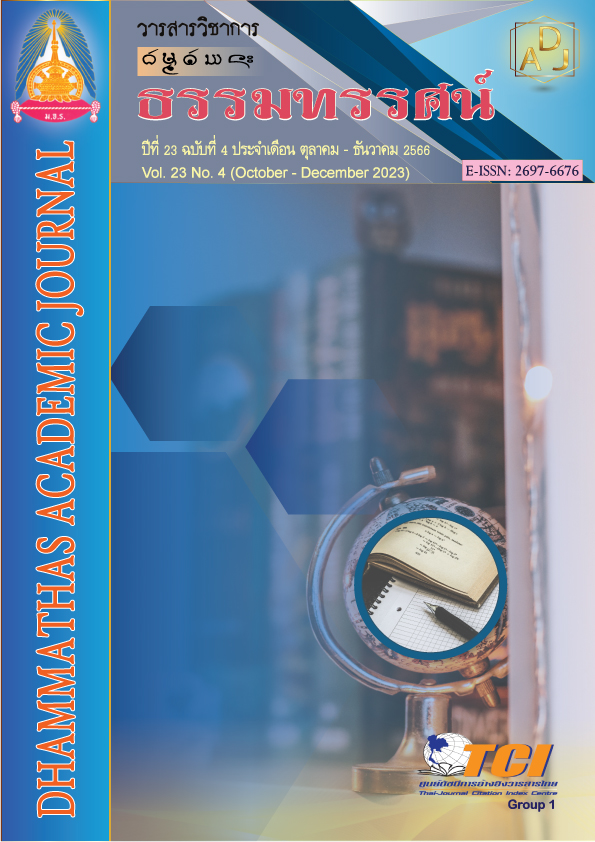The Needs Assessment for Life and Career Skills of Students of Rajamangala University of Technology Isan
Main Article Content
Abstract
The purposes of this research were to: 1) study current conditions and desirable conditions for live and career skills of students, 2) assess the needs of live and career skills for students. The cluster random sampling technique was used to collect data from 280 instructors of Rajamangala University of Technology Isan. A questionnaire was used to collect data. Quantitative data were analyzed using frequency, percentage, mean and standard deviation. Needs assessment in live and career skills for students was calculated by the priority need index (PNI modified) method.
The results showed that:
1. The current state of life and career skills according to the opinions of students, considering each aspect, it was found that productivity and responsibility have the highest average score. However, initiative and leadership had the lowest average score. As for the needs regarding life skills and career of students, it was at a high level. When considering each aspect, it was found that productivity and responsibility had the highest average scores, but initiative and leadership aspect had the lowest average scores.
2. As for the priority needs index to life and career skills occupation according to the opinions of the students, it was found that in the aspect of initiative and leadership, had the highest score, followed by flexibility and adaptability, social skills and cross-cultural learning, leadership and responsibility and productivity and accountability, respectively.
Article Details

This work is licensed under a Creative Commons Attribution-NonCommercial-NoDerivatives 4.0 International License.
เพื่อให้เป็นไปตามกฎหมายลิขสิทธิ์ ผู้นิพนธ์ทุกท่านต้องลงลายมือชื่อในแบบฟอร์มใบมอบลิขสิทธิ์บทความ ให้แก่วารสารฯ พร้อมกับบทความต้นฉบับที่ได้แก้ไขครั้งสุดท้าย นอกจากนี้ ผู้นิพนธ์ทุกท่านต้องยืนยันว่าบทความ ต้นฉบับที่ส่งมาตีพิมพ์นั้น ได้ส่งมาตีพิมพ์เฉพาะในวารสาร วิชาการธรรม ทรรศน์ เพียงแห่งเดียวเท่านั้น หากมีการใช้ ภาพหรือตารางของผู้นิพนธ์อื่นที่ปรากฏในสิ่งตีพิมพ์อื่นมาแล้ว ผู้นิพนธ์ต้องขออนุญาตเจ้าของลิขสิทธิ์ก่อน พร้อมทั้ง แสดงหนังสือที่ได้รับการยินยอมต่อบรรณาธิการ ก่อนที่บทความจะได้รับการตีพิมพ์References
ณัฐดนัย ประภัสโรทัย. (2556). การศึกษาทักษะการเรียนเพื่อการเรียนรู้ของผู้เรียนชั้นมัธยมศึกษาตอนปลาย: การวิจัยแบบผสมวิธี. กรุงเทพฯ: จุฬาลงกรณ์มหาวิทยาลัย.
ทิศนา แขมมณี. (2560). ศาสตร์การสอน: องค์ความรู้เพื่อการจัดกระบวนการเรียนรู้ที่มีประสิทธิภาพ. (พิมพ์ครั้งที่ 21). กรุงเทพฯ: จุฬาลงกรณ์มหาวิทยาลัย.
บุญชม ศรีสะอาด. (2560). หลักการวิจัยเบื้องต้น. (พิมพ์ครั้งที่ 9). กรุงเทพฯ: สุวีริยาสาส์น.
ประเสริฐ ผลิตผลการพิมพ์. (2553). อย่าเรียนหนังสือคนเดียว. กรุงเทพฯ: ซีเอดบุคส์.
ไพฑูรย์ สินลารัตน์. (2557). ทักษะแห่งศตวรรษที่ 21: ต้องก้าวให้พ้นกับดักของตะวันตก. กรุงเทพฯ: จุฬาลงกรณ์มหาวิทยาลัย.
มหาวิทยาลัยเทคโนโลยีราชมงคลอีสาน. (2560). แผนยุทธศาสตร์การพัฒนามหาวิทยาลัยเทคโนโลยีราชมงคลอีสาน ระยะ 4 ปี พ.ศ. 2561-พ.ศ. 2564. นครราชสีมา: กองนโยบายและแผน มหาวิทยาลัยเทคโนโลยีราชมงคลอีสาน.
วรพจน์ วงศ์กิจรุ่งเรือง และอธิป จิตตฤกษ์. (2558). ทักษะแห่งอนาคตใหม่: การศึกษาเพื่อศตวรรษที่ 21. กรุงเทพฯ: โอเพ่นเวิร์ล.
วิจารณ์ พาณิช. (2555). วิถีสร้างการเรียนรู้เพื่อศิษย์ ในศตวรรษที่ 21. กรุงเทพฯ: มูลนิธิสดศรี-สฤษดิ์วงศ์.
สำนักงานเลขาธิการสภาการศึกษา. (2561). อนาคตภาพของการผลิตและพัฒนากำลังคนอาชีวศึกษาตามความต้องการของตลาดแรงงานและทิศทางการพัฒนาประเทศ. กรุงเทพฯ: สำนักงานเลขาธิการสภาการศึกษา กระทรวงศึกษาธิการ.
สุวิมล ว่องวานิช. (2558). การวิจัยประเมินความต้องการจำเป็น. (พิมพ์ครั้งที่ 3). กรุงเทพฯ: จุฬาลงกรณ์มหาวิทยาลัย.
เสาวรัจ รัตนคำฟู. (2564). โลกใหม่ งานใหม่ ทักษะใหม่ กับ เสาวรัจ รัตนคำฟู. เข้าถึงได้จาก https://www.the101.world/saowaruj-rattanakhamfu-interview/
เอกชัย พุทธสอน. (2557). แนวโน้มการเสริมสร้างทักษะการเรียนรู้ในศตวรรษที่ 21 สำหรับนักศึกษาผู้ใหญ่. An Online Journal of Education, 9(4), 93-106.
Binkley, M., et al. (2012). Defining Twenty-First Century Skills. In P. Griffin, B. McGaw, & E. Care (Eds.), Assessment and Teaching of 21st Century Skills (pp. 17-66). Dordrecht: Springer.
Curriculum Services Canada. (2014). Life Skills Literacy: Career, Employment, and Volunteer Development. Retrieved from http://www.curriculum.org/storage/258/1335553265/LifeSkillsLiteracy.pdf
Egannathan, B., Dahlblom, K., & Kullgren, G. (2014). Outcome of a school-based intervention to promote life-skills among young people in Cambodia. Asian journal of psychiatry, 9, 78-84.
Mofrad, S., et al. (2013). Investigating life skills among young students in Malaysia. International Journal of Social Science and Humanity, 3(3), 210-213.
Partnership for 21st Century Skills. (2014). Framework for 21st Century Learning. Retrieved from http://www.p21.org/our-work/p21-framework
Voogt, J., & Roblin, N. P. (2012). A Comparative Analysis of International Frameworks for 21st Century Competences: Implications for National Curriculum Policies. Journal of Curriculum Studies, 44, 299-321.
Weiss, M. R., Bolter, N. D. & Kipp, L. E. (2014). Assessing impact of Physical Activity-Based Youth Development Programs: Validation of the Life Skills Transfer Survey (LSTS). Research quarterly for exercise and sport, 85(3), 263-278.

